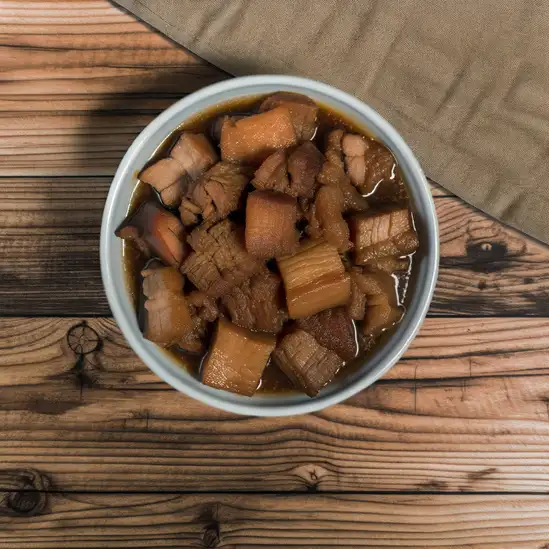



If you ever find yourself craving a slower pace,Wuzhen is the kind of place that wraps you in a gentle,timeless embrace. Imagine wandering through narrow cobblestone lanes lined with ancient wooden houses,their dark beams softened by creeping ivy and the warm glow of red lanterns swaying in the breeze. The air carries a faint scent of jasmine and freshly brewed tea,mingling with the subtle splash of water as small boats glide quietly along the canals. It’s a city that feels like stepping into a living painting,where every corner invites you to pause and soak in the calm. What really makes Wuzhen special is how it balances history and everyday life. Locals still go about their routines—selling handwoven silk,crafting delicate blue-and-white porcelain,or chatting over steaming bowls of noodles—while centuries-old bridges arch gracefully overhead. The rhythm here is unhurried,and you can almost hear the whispers of poets and painters who once found inspiration in these waterways. Don’t miss the chance to taste the local flavors:sweet osmanthus cakes,savory river fish,and the unmistakable warmth of freshly brewed chrysanthemum tea. As evening falls,the town transforms under a canopy of soft lights,and the gentle murmur of water and laughter creates a cozy soundtrack. Wuzhen isn’t just a place to see—it’s a place to feel,to breathe,and to remember long after you’ve left.
The information on this page is currently being reviewed by Tripkliq and should be used as a guide only
Eng word: Hello
Eng pronunciation: nǐ hǎo
Local language: 你好
Eng word: Goodbye
Eng pronunciation: zài jiàn
Local language: 再见
Eng word: Thank you
Eng pronunciation: xiè xiè
Local language: 谢谢
Eng word: How much
Eng pronunciation: duō shǎo qián
Local language: 多少钱
Eng word: Toilet
Eng pronunciation: cè suǒ
Local language: 厕所
Eng word: Help me
Eng pronunciation: bāng bāng wǒ
Local language: 帮帮我
Eng word: Yes
Eng pronunciation: shì
Local language: 是
Eng word: No
Eng pronunciation: bù shì
Local language: 不是
Eng word: Excuse me
Eng pronunciation: duì bù qǐ
Local language: 对不起
Wuzhen's history dates back to over 1,300 years, initially established during the Tang Dynasty. This ancient town has retained much of its historical architecture and charm.
Wuzhen was historically an important town on the Silk Road, facilitating the trade of silk, tea, and porcelain. Its strategic location along the Grand Canal bolstered its significance in trade and cultural exchanges.
Wuzhen is renowned for its significant contributions to Chinese literature, producing several notable scholars and literary figures, including Mao Dun, a prominent 20th-century Chinese writer.
The town is famed for its ancient architecture, including stone bridges, wooden homes, and tranquil waterways. Its preservation allows visitors to step back in time and experience life in ancient China.
Often referred to as a 'Venice of the East', Wuzhen's extensive network of waterways and bridges has played a crucial role in its development and adds to its picturesque beauty.
Wuzhen hosts the annual World Internet Conference, attracting global leaders and tech giants, transforming this ancient town into a junction of ancient culture and modern technological innovation.
The town is celebrated for its traditional cultural festivals, including the Dragon Boat Festival and the Lantern Festival, offering insights into Chinese traditions and local customs.
Wuzhen preserves ancient crafts, including indigo fabric dyeing and the production of rice wine, allowing visitors to experience the town's rich cultural heritage and artisanal legacy.
Wuzhen is part of the Grand Canal UNESCO World Heritage Site, recognized for its historical importance and contribution to Chinese and world heritage.
In Wuzhen, the most common Power Adaptor is Type A, Type C, Type I.







A rich and flavorful dish, braised pork belly is cooked slowly with soy sauce, sugar, and spices, resulting in tender meat with a glossy finish.

A local specialty, this dish features fish that is smoked to perfection, giving it a rich flavor and tender texture. It's often served with a side of pickled vegetables.

This traditional rice wine is brewed locally and is known for its smooth taste and fragrant aroma. It's often enjoyed warm and pairs well with various dishes.

These fluffy steamed buns are filled with savory pork and are a popular snack or meal option in Wuzhen, often enjoyed with a dipping sauce.

Locally made tofu is known for its freshness and is often served in various styles, including stir-fried or in soups, showcasing the region's culinary traditions.
If you ever find yourself wandering through Hangzhou,you’ll quickly realize it’s a city that gently pulls you into its rhythm—a blend of serene nature and vibrant culture that feels both timeless and alive. The moment you step near West Lake,the air shifts; there’s a soft mist hovering over the water in the early morning,and the delicate scent of blooming lotus flowers mingles with the faint aroma of freshly brewed tea from nearby gardens. It’s the kind of place where you can lose track of time watching traditional boats glide silently across the shimmering surface,framed by willow trees swaying in the breeze.
Hangzhou’s charm isn’t just in its landscapes but in the way history and modern life dance together. Ancient temples and pagodas peek through lush greenery,while bustling markets hum with the chatter of locals selling fragrant spices,silk,and hand-painted fans. You can almost hear the echoes of poets and painters who found inspiration here centuries ago. And then there’s the food—oh,the food! Imagine savoring a bowl of Longjing tea-infused shrimp or biting into a warm,flaky mooncake filled with sweet bean paste,each bite telling a story of the region’s rich culinary heritage.
What makes Hangzhou truly special is its pace:it invites you to slow down,breathe deeply,and soak in the beauty around you. Whether you’re wandering ancient streets,cycling along tree-lined paths,or simply sitting by the lake watching the sunset paint the sky in shades of pink and gold,Hangzhou feels like a warm embrace from a city that’s both peaceful and full of life.
Imagine stepping into a city where the past and future dance side by side,and that’s Shanghai for you. The moment you arrive,there’s this electric buzz in the air—neon lights flicker against the twilight sky,while the gentle hum of the Huangpu River carries stories from centuries ago. Walking along the Bund,you can almost taste the salty breeze mingling with the aroma of street food stalls sizzling with dumplings and scallion pancakes. It’s a city that never quite sleeps,yet somehow feels intimate and alive all at once.
Shanghai’s character is a fascinating blend of old-world charm and cutting-edge modernity. You’ll find yourself wandering through narrow alleys in the French Concession,where leafy trees shade quaint cafes and art galleries,then suddenly be swept up by the futuristic skyline of Pudong,with its towering skyscrapers piercing the clouds. The city’s rhythm is a mix of traditional tea houses where locals chat over jasmine tea and the pulse of techno beats spilling out of rooftop bars.
What really makes Shanghai unforgettable is how it invites you to slow down and soak in its layers. The chatter of vendors,the clinking of mahjong tiles,the scent of jasmine and roasted chestnuts—all these details create a sensory tapestry that feels both vibrant and comforting. It’s a place where every corner tells a story,and every meal is a celebration. Trust me,once you’ve felt Shanghai’s heartbeat,you’ll want to come back just to listen again.
If you wander into Suzhou,you’ll immediately feel like you’ve stepped into a living painting—graceful canals weaving through ancient streets,willow trees swaying gently in the breeze,and the soft clatter of wooden boats gliding over water. There’s a calm rhythm here,a quiet elegance that wraps around you like a warm shawl. The city hums with a blend of old-world charm and subtle modern life,where centuries-old gardens bloom with delicate peonies and lotus flowers,and the scent of jasmine tea drifts from cozy teahouses tucked away on narrow lanes.
Walking through Suzhou’s classical gardens is like stepping into a storybook. Each garden feels like a carefully composed poem,with stone bridges arching over koi-filled ponds,intricate pavilions framing views of bamboo groves,and the gentle trickle of water creating a soothing soundtrack. The air carries a faint hint of incense and fresh blossoms,inviting you to slow down and savor the moment. At night,lanterns cast a soft glow on cobblestone streets,and the aroma of freshly steamed dumplings and sweet osmanthus pastries tempts you from bustling market stalls.
What makes Suzhou truly special is its blend of artistry and everyday life. It’s a city where silk weaving traditions still thrive alongside lively tea ceremonies,and where locals greet you with genuine warmth. Whether you’re sipping green tea by a lotus pond or exploring the maze of canals by boat,Suzhou invites you to experience a timeless elegance that lingers long after you leave.
Imagine stepping into Ningbo and instantly feeling the pulse of a city where ancient traditions and modern life dance effortlessly together. The air carries a subtle mix of salty sea breeze from the nearby East China Sea and the inviting aroma of freshly steamed dumplings wafting from street vendors. Walking through its bustling markets,you’ll hear the lively chatter of locals bargaining,the clatter of mahjong tiles,and the occasional call of a street musician playing a hauntingly beautiful erhu melody.
Ningbo’s charm lies in its layered personality. It’s a place where sleek skyscrapers stand alongside centuries-old temples,and where the rhythm of daily life is both fast-paced and deeply rooted in history. The city’s waterfront is especially captivating at dusk,with fishing boats bobbing gently and lanterns flickering to life,casting a warm glow over the harbor. You can almost taste the ocean in the air,and if you’re lucky,you’ll catch the fresh catch of the day grilled to perfection at a local eatery.
What really stays with you is Ningbo’s welcoming spirit. The people here carry a quiet pride in their city’s rich heritage,from the intricate porcelain crafts to the vibrant festivals that color the streets with music and dance. It’s a place that invites you to slow down,explore its winding alleys,savor its unique flavors,and feel connected to a culture that’s both timeless and alive. Trust me,Ningbo isn’t just a stop on your trip—it’s a place that lingers in your heart long after you leave.
If you ever find yourself craving a coastal escape that feels both timeless and alive,Zhoushan is where you want to be. Imagine waking up to the gentle hum of fishing boats bobbing in the harbor,the salty breeze carrying the scent of fresh seafood and seaweed. The city’s rhythm is unhurried but vibrant,a place where ancient temples perch on rocky cliffs and modern life flows seamlessly alongside centuries-old traditions. Walking through its streets,you’ll hear the chatter of locals bargaining at bustling markets,the clatter of chopsticks in seaside eateries,and the distant call of seagulls overhead.
Zhoushan’s charm lies in its intimate connection to the sea. The islands scattered around the city offer stunning views of turquoise waters meeting rugged shorelines,where you can feel the cool spray of waves and watch fishermen haul in their daily catch. The seafood here isn’t just fresh—it’s a celebration of the ocean’s bounty,with dishes bursting with umami and subtle brininess that linger on your tongue. Don’t miss trying the local specialties like steamed scallops with garlic or the sweet,tender sea cucumbers.
Beyond the food and scenery,Zhoushan carries a quiet spirituality. The temples,especially the famous Putuo Mountain,invite you to slow down and soak in the peaceful atmosphere,where incense curls in the air and monks chant softly. It’s a place that invites curiosity and calm,where every corner tells a story and every sunset feels like a personal gift. Trust me,Zhoushan isn’t just a destination—it’s a feeling you’ll want to return to.
Imagine stepping into a place where the ocean breeze carries the scent of salty waves mingled with the sweet aroma of blooming frangipani. That’s Xiamen for you—a coastal city that feels like a gentle hug from the sea itself. Walking along the palm-lined streets,you’ll hear the rhythmic chatter of locals and the distant hum of fishing boats returning with the day’s catch. The city pulses with a laid-back energy,a perfect blend of old-world charm and modern vibrancy.
What really makes Xiamen stand out is its unique mix of cultures. The colonial-era architecture on Gulangyu Island,with its pastel-colored mansions and winding lanes,invites you to wander and get lost in stories whispered by the walls. Meanwhile,the bustling markets and street food stalls on the mainland offer a sensory feast—imagine biting into a freshly made oyster omelet,the flavors rich and briny,or sipping on a cup of fragrant jasmine tea while watching the world go by.
Xiamen’s character is warm and welcoming,with a rhythm that encourages you to slow down and savor the moment. Whether you’re cycling along the scenic coastline,exploring quaint temples tucked away in quiet corners,or simply sitting by the water as the sun dips below the horizon,there’s a peacefulness here that stays with you long after you leave. It’s a city that invites you to breathe deeply,taste boldly,and feel truly alive.
Scammers pose as art students and invite tourists to view their 'exhibition,' pressuring them to buy overpriced artwork.
Shops sell fake branded items as authentic, often at prices that seem like a bargain but are still overpriced for their quality.
Unlicensed guides offer their services, providing inaccurate or misleading information while charging high fees.
Scammers sell counterfeit tickets to popular attractions, leaving tourists unable to enter the sites.
Drivers quote a low price initially but demand a much higher fare at the end of the ride.
Shops in tourist-heavy areas sell souvenirs at inflated prices, targeting unaware tourists.
Locals in traditional attire offer to take photos with tourists and then demand a high fee afterward.
Some restaurants do not display prices clearly and charge tourists significantly more than locals for the same dishes.
Tourists are approached by friendly locals who invite them to a tea ceremony. After the ceremony, they are presented with an exorbitant bill.
China has very strict laws regarding drug use, possession, and trafficking. This includes Wuzhen. The penalties for drug-related offenses can be severe, including long prison sentences and even the death penalty for serious offenses. Tourists should avoid any involvement with illegal drugs to ensure their safety and compliance with local laws.
In Wuzhen, as in many parts of China, smoking is generally allowed in public places, although there are increasing restrictions in certain areas such as hospitals, schools, and public transportation. Many restaurants and hotels may have designated smoking areas. Tourists should look for 'No Smoking' signs and adhere to local regulations to avoid fines.
Vaping is subject to similar regulations as smoking in Wuzhen. While it is not as widely regulated as in some Western countries, it is advisable to use vaping devices in designated smoking areas and to be mindful of local customs and regulations. Vaping in non-smoking areas can result in fines or other penalties.
What are other people saying about Wuzhen?
Recent Social posts about Wuzhen
There is nothing to show you for now.